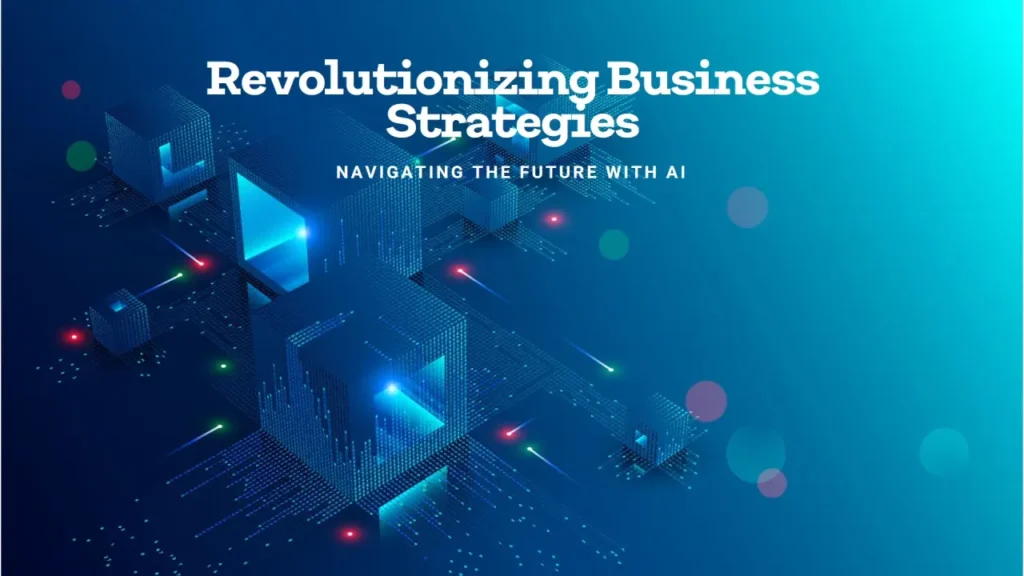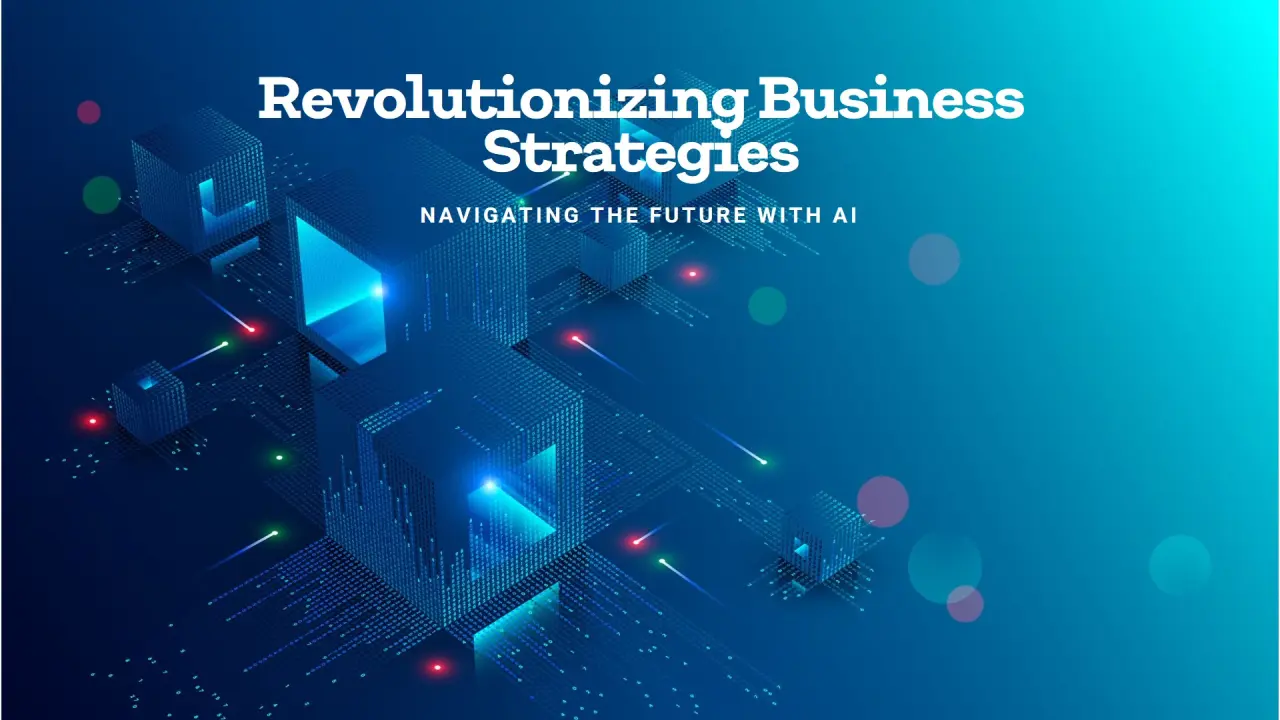
Artificial Intelligence (AI) is no longer a futuristic idea; it’s a reality that’s transforming how businesses operate across every industry. From enhancing customer experiences to optimizing operational efficiencies, AI integration has become a cornerstone for innovative and forward-thinking companies worldwide. At Skom Enterprises, we believe in harnessing the power of AI to unlock growth and redefine strategy. Here’s an in-depth look at how AI integration is revolutionizing business, along with actionable steps on implementing it successfully.
1. Why AI Integration is Essential for Modern Business
AI enables businesses to make data-driven decisions, streamline operations, and anticipate customer needs with incredible precision. Here are some of the key reasons why AI integration is becoming indispensable:
- Increased Efficiency: AI can automate routine tasks, allowing teams to focus on higher-level strategic initiatives.
- Enhanced Decision-Making: Through AI-powered analytics, businesses can uncover actionable insights that lead to better outcomes.
- Personalized Customer Experiences: AI-driven customer insights enable brands to tailor interactions, resulting in greater loyalty and satisfaction.
- Cost Savings: AI helps companies reduce costs by minimizing human error, improving process efficiency, and lowering operational costs.
- Scalability: AI solutions scale seamlessly, allowing businesses to expand capabilities without significantly increasing resource allocation.
2. Key Areas Where AI Integration is Making an Impact
AI integration spans across various business functions, transforming both customer-facing and internal operations. Here are some of the critical areas where AI is having a profound impact:
a) Customer Service and Support
AI-driven chatbots and virtual assistants offer 24/7 customer support, resolving routine inquiries and freeing up human agents for more complex issues. Advanced natural language processing (NLP) helps these bots understand customer intent and respond in ways that feel human, creating smoother, more satisfying interactions.
b) Marketing and Sales Optimization
AI tools enable marketers to segment audiences more effectively, predict consumer behavior, and deliver hyper-personalized content at the right time. Predictive analytics helps sales teams anticipate demand and identify the most promising leads, enabling more effective customer acquisition and retention strategies.
c) Supply Chain and Logistics
AI-powered algorithms can analyze vast amounts of data to optimize supply chain operations, from demand forecasting to inventory management. By predicting disruptions and adjusting plans in real time, AI minimizes delays and keeps logistics running smoothly.
d) HR and Talent Acquisition
AI-powered tools streamline recruitment by screening candidates, analyzing skills, and even conducting preliminary interviews. Predictive analytics also helps HR teams identify employees at risk of turnover, allowing for proactive retention efforts.
e) Finance and Risk Management
AI-driven algorithms in finance can detect fraudulent activities, assess risk, and provide data-driven recommendations for investment and budgeting. This allows businesses to manage finances more accurately and respond to market changes with agility.
3. Implementing AI: A Step-by-Step Guide
Integrating AI into your business requires careful planning, clear objectives, and a strategic approach. Here are the key steps to ensure successful AI integration:
Step 1: Identify AI Opportunities
Start by identifying areas where AI could have the most impact on your business. Whether it’s automating customer support or analyzing large data sets, having clear goals helps you prioritize and allocate resources effectively.
Step 2: Invest in the Right Tools
Choosing the right AI tools is crucial. For example, if you’re looking to enhance customer experience, chatbots and CRM software with AI capabilities are ideal. For analytics, machine learning platforms like TensorFlow and data visualization tools such as Tableau are excellent options.
Step 3: Build a Skilled Team
Successful AI integration requires both technical expertise and strategic insight. Upskill your existing team through AI training or bring in AI specialists to guide your strategy. Collaborate with your team to ensure AI initiatives align with broader business objectives.
Step 4: Start Small and Scale
Instead of deploying AI across all areas at once, start with a pilot project to test its effectiveness. This approach helps you gather data, measure success, and make any necessary adjustments before scaling AI across other areas of your business.
Step 5: Monitor, Measure, and Optimize
AI integration is not a one-time effort; it requires ongoing evaluation. Regularly monitor AI performance, gather feedback, and optimize systems to ensure maximum effectiveness and adaptability to new challenges or market conditions.
4. Overcoming Common Challenges in AI Integration
AI integration, while transformative, can also be complex. Here’s how to tackle some of the most common challenges businesses face:
- Data Quality and Availability: AI models are only as good as the data they’re trained on. Ensuring high-quality, relevant data is essential for achieving reliable AI insights.
- Privacy and Security Concerns: AI relies on vast amounts of data, which often includes sensitive customer information. Implement robust data protection measures to safeguard customer privacy and ensure compliance with data regulations.
- Resistance to Change: AI integration may face pushback from employees concerned about job security. Address these concerns through open communication, emphasizing AI as a tool to augment human capabilities rather than replace them.
- Resource Allocation: AI solutions can be costly to develop and maintain. Evaluate return on investment (ROI) carefully and consider incremental implementations to manage costs effectively.
5. Real-World Examples of Successful AI Integration
Seeing how other companies use AI can offer inspiration and actionable insights. Here are a few examples of AI in action across various industries:
- Amazon: Amazon’s AI-driven recommendation engine suggests products based on user behavior, leading to personalized shopping experiences and increased sales.
- Tesla: Tesla uses AI in its self-driving technology, analyzing real-time data from its fleet to improve the safety and functionality of autonomous vehicles.
- Spotify: Spotify’s AI algorithms analyze listening patterns to create personalized playlists and discover new music that aligns with users’ tastes.
- Coca-Cola: Coca-Cola uses AI for demand forecasting and personalized marketing campaigns, increasing customer engagement and optimizing production schedules.
6. The Future of AI in Business
As AI technology advances, its role in business will continue to evolve. Some anticipated developments in the near future include:
- Increased Personalization: AI will enable even greater levels of personalization, with companies able to predict customer needs and preferences more accurately than ever.
- Enhanced Predictive Analytics: AI’s predictive capabilities will grow, allowing businesses to anticipate market trends, forecast demand, and adjust strategies accordingly.
- Autonomous Decision-Making: AI will evolve to make complex decisions independently, helping companies act quickly and capitalize on emerging opportunities.
- Cross-Industry Collaboration: AI-driven platforms will facilitate collaboration across industries, creating new opportunities for partnerships and innovation.
AI integration is reshaping the business world, offering endless opportunities for growth, innovation, and efficiency. From predictive analytics to personalized marketing, AI empowers companies to stay competitive and responsive to customer needs. At Skom Enterprises, we specialize in helping businesses leverage AI to enhance strategy, improve customer experiences, and drive long-term success.
Ready to unlock the power of AI for your business? Contact us today to learn how our AI-driven solutions can give you the competitive edge you need.
Click Here To Read Our Blog Posts


Leave a Reply